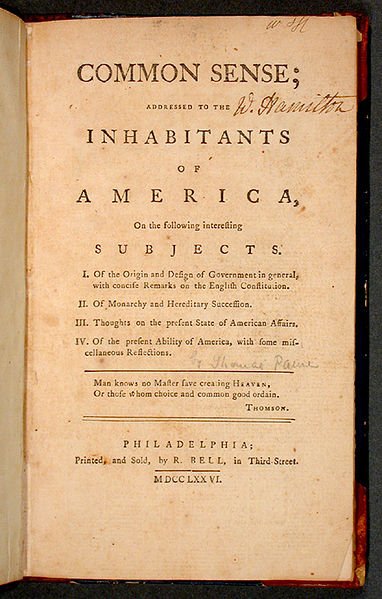new posts in all blogs
Viewing: Blog Posts Tagged with: Rhetoric &, Most Recent at Top [Help]
Results 1 - 14 of 14
How to use this Page
You are viewing the most recent posts tagged with the words: Rhetoric & in the JacketFlap blog reader. What is a tag? Think of a tag as a keyword or category label. Tags can both help you find posts on JacketFlap.com as well as provide an easy way for you to "remember" and classify posts for later recall. Try adding a tag yourself by clicking "Add a tag" below a post's header. Scroll down through the list of Recent Posts in the left column and click on a post title that sounds interesting. You can view all posts from a specific blog by clicking the Blog name in the right column, or you can click a 'More Posts from this Blog' link in any individual post.

By: SoniaT,
on 2/27/2016
Blog:
OUPblog
(
Login to Add to MyJacketFlap)
JacketFlap tags:
Politics,
Linguistics,
*Featured,
oxford dictionaries,
Oxford Dictionaries Online,
ODO,
Online products,
oxfordwords blog,
Rhetoric & Quotations,
language of politics,
US Presidential Election 2016,
Bigly Definition,
Donald Trump Rhetoric,
Lorna Shaddick,
Political Lexicon,
Political Linguistics,
Political Profanity,
Presidential Campaign Rhetoric,
Vocabulary of Sarah Palin,
Add a tag
In the United States, thoughts are turning to the start of the primary season, when votes are cast to choose each party’s presidential nominee. It’s a complicated and sometimes very long process, beginning in Iowa and winding all the way to the conventions in the summer, and every time it gets going, there are certain buzzwords that seem to find their way into the American popular consciousness.
The post Political profanity and crude creativity on the campaign trail appeared first on OUPblog.

By: SoniaT,
on 2/6/2016
Blog:
OUPblog
(
Login to Add to MyJacketFlap)
JacketFlap tags:
The Language of Public Apology,
Public Apologies,
Apology Tour,
Nonapology,
Etymology of Apologize,
Public Rhetoric,
Linguistics,
political rhetoric,
*Featured,
oxford dictionaries,
Oxford Dictionaries Online,
ODO,
Online products,
Rhetoric & Quotations,
Sorry About That,
Edwin L. Battistella,
Add a tag
OxfordDictionaries.com is adding the nouns apology tour and nonapology. These additions represent two related steps in the evolution of the noun apology, which first entered English in the sixteenth century, according to the Oxford English Dictionary (OED). Its earliest example is a book title: the 1533 Apologie of Syr Thomas More.
The post Regretoric: the rise of the “nonapology” apology and the “apology tour” appeared first on OUPblog.

By: Alex Guyver,
on 5/31/2015
Blog:
OUPblog
(
Login to Add to MyJacketFlap)
JacketFlap tags:
speech,
*Featured,
epistemology,
philosophy of language,
Rhetoric & Quotations,
philosophy of mind,
Arts & Humanities,
Assertion,
on the philosophical significance of assertoric speech,
Sanford C. Goldberg,
Books,
ethics,
Philosophy,
authority,
language,
communication,
Add a tag
There are various more or less familiar acts by which to communicate something with the reasonable expectation of being believed. We can do so by stating, reporting, contending, or claiming that such-and-such is the case; by telling others things, informing an audience of this-or-that, or vouching for something; by affirming or attesting to something’s being the case, or avowing that this-or-that is true.
What do these acts have in common? Each is an instance of the kind of speech act known as an assertion.
The post Authoritative speech appeared first on OUPblog.

By: Bridget Stokes,
on 5/9/2015
Blog:
OUPblog
(
Login to Add to MyJacketFlap)
JacketFlap tags:
Lincolns last speech,
Louis P. Masur,
Louisiana black suffrage,
Louisiana state constitution,
Wartime Reconstruction and the Crisis of Reunion,
Books,
History,
Biography,
America,
Abraham Lincoln,
american civil war,
*Featured,
Rhetoric & Quotations,
Add a tag
Lincoln’s last speech, delivered on 11 April 1865, seldom receives the attention it deserves. The prose is not poetic, but then it was not meant to inspire but to persuade. He had written the bulk of the speech weeks earlier in an attempt to convince Congress to readmit Louisiana to the Union.
The post Why Lincoln’s last speech matters appeared first on OUPblog.

By: Bridget Stokes,
on 4/11/2015
Blog:
OUPblog
(
Login to Add to MyJacketFlap)
JacketFlap tags:
Gettysburg Address,
*Featured,
Rhetoric & Quotations,
Lincoln-Douglas debate,
Lincolns last speech,
Louis P. Masur,
Missouri Compromise,
US Civil War,
Books,
History,
Biography,
America,
Abraham Lincoln,
Inaugural Address,
Add a tag
Leaving behind a legacy that transcends generations today, Abraham Lincoln was a veteran when it came to giving speeches. Delivering one of the most quoted speeches in history, Lincoln addressed the nation on a number of other occasions, captivating his audience and paving the way for generations to come. Here is an in-depth look at Lincoln’s eleven greatest speeches, in chronological order.
The post Lincoln’s eleven greatest speeches appeared first on OUPblog.

By: Alice,
on 4/2/2015
Blog:
OUPblog
(
Login to Add to MyJacketFlap)
JacketFlap tags:
April Fool's Day,
academia,
*Featured,
Rhetoric & Quotations,
Eric Jarosinski,
Nein Quarterly,
Twitter account takeover,
Twitter guest twitterer,
Language,
Add a tag
Yesterday, we invited Eric Jarosinski, aka Nein Quarterly, to guest tweet on the Oxford Academic Twitter account. Instead of our usual academic news and insights, followers were treated to #OxfordMisfortuneCookies and other wisdom. As a former professor, Eric is all too familiar with the many absurdities of academia, which he addresses with his trademark voice of "utopian negation". Here's a brief compilation of his tweets.
The post April Fool’s Day with Nein Quarterly appeared first on OUPblog.

By: SoniaT,
on 1/19/2015
Blog:
OUPblog
(
Login to Add to MyJacketFlap)
JacketFlap tags:
*Featured,
Rhetoric & Quotations,
martin luther king jr quotes,
mlk quotes,
Books,
Martin Luther King Jr. Day,
oxford dictionary of quotations,
elizabeth knowles,
martin luther king jr,
Add a tag
Each January, Americans commemorate the birthday of Martin Luther King, Jr., reflecting on the enduring legacy of the legendary civil rights activist. From his iconic speech at the 1963 March on Washington, to his final oration in Memphis, Tennessee, King is remembered not only as a masterful rhetorician, but a luminary for his generation and many generations to come. These quotes, compiled from the Oxford Dictionary of Quotations, demonstrate the reverberating impact of his work, particularly in a time of great social, political, and economic upheaval.
On courage:
“A riot is at bottom the language of the unheard.”
Where Do We Go From Here? (1967) ch. 4
“If a man hasn’t discovered something he will die for, he isn’t fit to live.”
Speech in Detroit, 23 June 1963, in James Bishop The Days of Martin Luther King (1971) ch. 4
“Cowardice asks the question, ‘Is it safe?’ Expediency asks the question, ‘Is it politic?’ Vanity asks the question, ‘Is it popular?’ But Conscience asks the question, ‘Is it right?’”
Speech, 1967; in Autobiography of Martin Luther King Jr. (1999) ch. 30
On equality:
“I have a dream that one day on the red hills of Georgia the sons of former slaves and the sons of former slave owners will be able to sit down together at the table of brotherhood…I have a dream that my four little children will one day live in a nation where they will not be judged by the colour of their skin but by the content of their character.”
Speech at Civil Rights March in Washington, 28 August 1963, in New York Times 29 August 1963; see also jackson 413:13
“Returning hate for hate multiplies hate, adding deeper darkness to a night already devoid of stars. Darkness cannot drive out darkness; only light can do that. Hate cannot drive out hate; only love can do that.”
Strength to Love (1963) ch. 5, pt. 2
On justice:
“Judicial decrees may not change the heart; but they can restrain the heartless.”
Speech in Nashville, Tennessee, 27 December 1962, in James Melvin Washington (ed.) A Testament of Hope: The Essential Writings of Martin Luther King, Jr. (1986) ch. 22
“Injustice anywhere is a threat to justice everywhere.”
Letter from Birmingham Jail, Alabama, 16 April 1963, in Atlantic Monthly August 1963
“We shall overcome because the arc of a moral universe is long, but it bends toward justice.”
Sermon at the National Cathedral, Washington, 31 March 1968, in James Melvin Washington A Testament of Hope (1991); see obama 571:3, parker 585:12
On inaction:
“The Negro’s great stumbling block in the stride toward freedom is not the White Citizens Councillor or the Ku Klux Klanner but the white moderate who is more devoted to order than to justice; who prefers a negative peace which is the absence of tension to a positive peace which is the presence of justice.”
Letter from Birmingham Jail, Alabama, 16 April 1963, in Atlantic Monthly August 1963
“We will have to repent in this generation not merely for the hateful words and actions of the bad people, but for the appalling silence of the good people.”
Letter from Birmingham Jail, Alabama, 16 April 1963
Image Credit: Tribute to Martin Luther King, Jr. Photo by U.S. Embassy New Delhi. CC by ND 2.0 via Flickr.
The post Martin Luther King, Jr. on courage, equality, and justice appeared first on OUPblog.


By: Connie Ngo,
on 12/16/2014
Blog:
OUPblog
(
Login to Add to MyJacketFlap)
JacketFlap tags:
slideshow,
oxford dictionary of quotations,
elizabeth knowles,
*Featured,
Images & Slideshows,
Rhetoric & Quotations,
Dictionary of Quotations,
Books,
winter,
Christmas,
snow,
Quotes,
images,
quotations,
holiday,
dictionary,
Add a tag
Winter encourages a certain kind of idiosyncratic imagery not found during any other season: white, powdery snow, puffs of warm breath, be-scarfed holiday crowds. The following slideshow presents a lovely compilation of quotes from the eighth edition of our Oxford Dictionary of Quotations that will inspire a newfound love for winter, whether you’ve ever experienced snow or not!
Are there any other wintry quotes that you love? Let us know in the comments below.
Headline image credit: Winter bird. Photo by Mathias Erhart. CC BY-SA 2.0 via Flickr. All slideshow background images CC0/public domain via Pixabay or PublicDomainPictures.net (1) (2) (3) (4) (5) (6) (7) (8) (9) (10).
The post 10 quotes to inspire a love of winter appeared first on OUPblog.


By: Hannah Paget,
on 9/27/2014
Blog:
OUPblog
(
Login to Add to MyJacketFlap)
JacketFlap tags:
WW1,
odnb,
first world war,
robert graves,
oxford dictionary of quotations,
elizabeth knowles,
*Featured,
Western Front,
centenary,
UKpophistory,
war poetry,
Rhetoric & Quotations,
Edward Grey,
Goodbye to All That?,
Kemal Atatürk,
Lena Guilbert Horne,
odq,
Wildred Owen,
Books,
History,
Language,
World,
world war I,
f. scott fitzgerald,
Add a tag
Coverage of the centenary of the outbreak of the First World War has made us freshly familiar with many memorable sayings, from Edward Grey’s ‘The lamps are going out all over Europe’, to Wilfred Owen’s ‘My subject is War, and the pity of war/ The Poetry is in the pity’, and Lena Guilbert Horne’s exhortation to ‘Keep the Home-fires burning’.
But as I prepared the new edition of the Oxford Dictionary of Quotations, I was aware that numerous other ‘quotable quotes’ also shed light on aspects of the conflict. Here are just five.
One vivid evocations of the conflict striking passage comes not from a War Poet but from an American novelist writing in the 1930s. In F. Scott Fitzgerald’s Tender is the Night (1934), Dick Diver describes the process of trench warfare:
See that little stream—we could walk to it in two minutes. It took the British a month to walk it—a whole empire walking very slowly, dying in front and pushing forward behind. And another empire walked very slowly backward a few inches a day, leaving the dead like a million bloody rugs.
This was, of course, on the Western Front, but there were other theatres of war. One such was the Gallipoli Campaign of 1915–16, where many ‘Anzacs’ lost their lives. In 1934, a group of Australians visited Anzac Cove, Gallipoli, and heard an address by Kemal Atatürk—Commander of the Turkish forces during the war, and by then President of Turkey. Speaking of the dead on both sides, he said:
There is no difference between the Johnnies and the Mehmets to us where they lie side by side in this country of ours. You, the mothers, who sent their sons from faraway countries, wipe away your tears. Your sons are now lying in our bosom and are in peace. After having lost their lives on this land, they have become our sons as well.
Atatürk’s words were subsequently inscribed on the memorial at Gallipoli, and on memorials in Canberra and Wellington.
World War I is often is often seen as a watershed, after which nothing could be the same again. (The young Robert Graves’s autobiography published in 1929 was entitled Goodbye to All That.) Two quotations from ODQ look ahead from the end of the war to what might be the consequences. For Jan Christiaan Smuts, President of South Africa, the moment was one of promise. He saw the setting up of the League of Nations in the aftermath of the war as a hope for better things:
Mankind is once more on the move. The very foundations have been shaken and loosened, and things are again fluid. The tents have been struck, and the great caravan of humanity is once more on the march.
However a much less optimistic, and regrettably more prescient comment, had been recorded in 1919 by Marshal Foch on the Treaty of Versailles,
This is not a peace treaty, it is an armistice for twenty years.
Not all ‘war poems’ are immediately recognizable as such. In 1916, the poet and army officer Frederick William Harvey was made a prisoner of war (the Oxford Dictionary of National Biography tells us that he went on to experience seven different prison camps). Returning from a period of solitary confinement, he apparently noticed the drawing of a duck on water made by a fellow-prisoner. This inspired what has become a very well-loved poem.
From troubles of the world
I turn to ducks
Beautiful comical things.
How many people, encountering the poem today, consider that the ‘troubles’ might include a world war?
Headline image credit: A message-carrying pigeon being released from a port-hole in the side of a British tank, near Albert, France. Photo by David McLellan, August 1918. Imperial War Museums. IWM Non-Commercial License via Wikimedia Commons.
The post World War I in the Oxford Dictionary of Quotations appeared first on OUPblog.


By: Sara Pinotti,
on 8/3/2014
Blog:
OUPblog
(
Login to Add to MyJacketFlap)
JacketFlap tags:
Books,
Philosophy,
Language,
comparisons,
venice,
Gerard Manley Hopkins,
metaphors,
Plato,
metaphor,
Rhetoric,
Humanities,
Editor's Picks,
*Featured,
ruskin’s,
john ruskin,
Rhetoric & Quotations,
critical imaginaiton,
james grant,
The Critical Imagination,
the stones of venice,
breezes,
ducal,
inexpressible,
Add a tag
By James Grant
Plato famously said that there is an ancient quarrel between philosophy and poetry. But with respect to one aspect of poetry, namely metaphor, many contemporary philosophers have made peace with the poets. In their view, we need metaphor. Without it, many truths would be inexpressible and unknowable. For example, we cannot describe feelings and sensations adequately without it. Take Gerard Manley Hopkins’s exceptionally powerful metaphor of despair:
selfwrung, selfstrung, sheathe- and shelterless,
thoughts against thoughts in groans grind.
How else could precisely this kind of mood be expressed? Describing how things appear to our senses is also thought to require metaphor, as when we speak of the silken sound of a harp, the warm colours of a Titian, and the bold or jolly flavour of a wine. Science advances by the use of metaphors – of the mind as a computer, of electricity as a current, or of the atom as a solar system. And metaphysical and religious truths are often thought to be inexpressible in literal language. Plato condemned poets for claiming to provide knowledge they did not have. But if these philosophers are right, there is at least one poetic use of language that is needed for the communication of many truths.
In my view, however, this is the wrong way to defend the value of metaphor. Comparisons may well be indispensable for communication in many situations. We convey the unfamiliar by likening it to the familiar. But many hold that it is specifically metaphor – and no other kind of comparison – that is indispensable. Metaphor tells us things the words ‘like’ or ‘as’ never could. If true, this would be fascinating. It would reveal the limits of what is expressible in literal language. But no one has come close to giving a good argument for it. And in any case, metaphor does not have to be an indispensable means to knowledge in order to be as valuable as we take it to be.
Metaphor may not tell us anything that couldn’t be expressed by other means. But good metaphors have many other effects on readers than making them grasp some bit of information, and these are often precisely the effects the metaphor-user wants to have. There is far more to the effective use of language than transmitting information. My particular interest is in how art critics use metaphor to help us appreciate paintings, architecture, music, and other artworks. There are many reasons why metaphor matters, but art criticism reveals two reasons of particular importance.
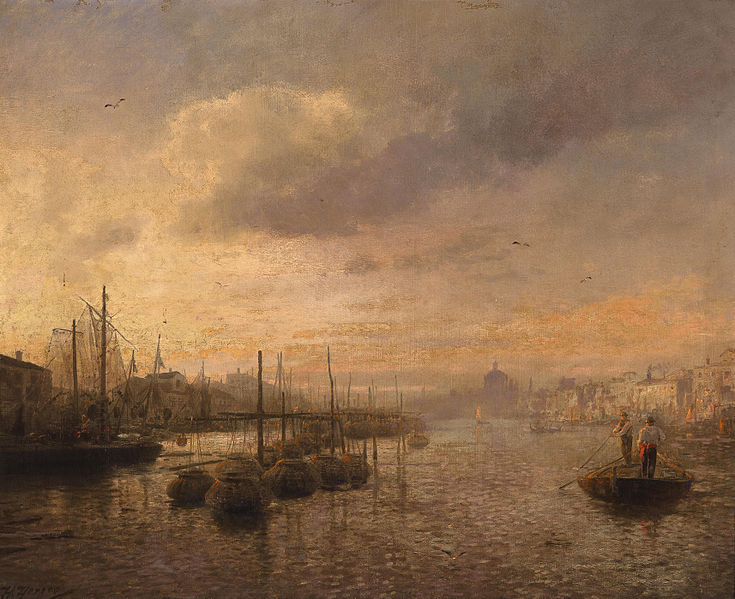
Take this passage from John Ruskin’s The Stones of Venice. Ruskin describes arriving in Venice by boat and seeing ‘the long ranges of columned palaces,—each with its black boat moored at the portal,—each with its image cast down, beneath its feet, upon that green pavement which every breeze broke into new fantasies of rich tessellation’, and observing how ‘the front of the Ducal palace, flushed with its sanguine veins, looks to the snowy dome of Our Lady of Salvation’.
One thing Ruskin’s metaphors do is describe the waters of Venice and the Ducal palace at an extraordinary level of specificity. There are many ways water looks when breezes blow across its surface. There are fewer ways it looks when breezes blow across its surface and make it look like something broken into many pieces. And there are still fewer ways it looks when breezes blow across its surface and make it look like something broken into pieces forming a rich mosaic with the colours of Venetian palaces and a greenish tint. Ruskin’s metaphor communicates that the waters of Venice look like that. The metaphor of the Ducal palace as ‘flushed with its sanguine veins’ likewise narrows the possible appearances considerably. Characterizing appearances very specifically is of particular use to art critics, as they often want to articulate the specific appearance an artwork presents.
A second thing metaphors like Ruskin’s do is cause readers to imagine seeing what he describes. We naturally tend to picture the palace or the water on hearing Ruskin’s metaphor. This function of metaphor has often been noted: George Orwell, for instance, writes that ‘a newly invented metaphor assists thought by evoking a visual image’.
Why do novel metaphors evoke images? Precisely because they are novel uses of words. To understand them, we cannot rely on our knowledge of the literal meanings of the words alone. We often have to employ imagination. To understand Ruskin’s metaphor, we try to imagine seeing water that looks like a broken mosaic. If we manage this, we know the kind of look that he is attributing to the water.
Imagining a thing is often needed to appreciate that thing. Knowing facts about it is often not enough by itself. Accurately imagining Hopkins’s despondency, or the experience of arriving in Venice by boat, gives us some appreciation of these experiences. By enabling us to imagine accurately and specifically, metaphor is exceptionally well suited to enhancing our appreciation of what it describes.
James Grant is a Tutorial Fellow in Philosophy at Exeter College, Oxford. He is the author of The Critical Imagination.
Subscribe to the OUPblog via
email or
RSS.
Subscribe to only philosophy articles on the OUPblog via
email or
RSS.
The post Why metaphor matters appeared first on OUPblog.


By: Alice,
on 7/4/2014
Blog:
OUPblog
(
Login to Add to MyJacketFlap)
JacketFlap tags:
Books,
History,
Literature,
American Revolution,
Language,
America,
Secrets,
fireworks,
propaganda,
fourth of july,
rhetorical,
american literature,
common sense,
Rhetoric,
Humanities,
paine’s,
russ,
*Featured,
Rhetoric & Quotations,
colonial propaganda,
Leaks,
Propaganda 1776,
Revolutionary Communications,
Russ Castronovo,
Tom Paine,
castronovo,
freneau,
pamphlet,
Add a tag
By Russ Castronovo
Ever since 4 July 1777 when citizens of Philadelphia celebrated the first anniversary of American independence with a fireworks display, the “rockets’ red glare” has lent a military tinge to this national holiday. But the explosive aspect of the patriots’ resistance was the incendiary propaganda that they spread across the thirteen colonies.
Sam Adams understood the need for a lively barrage of public relations and spin. “We cannot make Events; Our Business is merely to improve them,” he said. Exaggeration was just one of the tricks in the rhetorical arsenal that rebel publicists used to “improve” events. Their satires, lampoons, and exposés amounted to a guerilla war—waged in print—against the Crown.
While Independence Day is about commemorating the “self-evident truths” of the Declaration of Independence, the path toward separation from England relied on a steady stream of lies, rumor, and accusation. As Philip Freneau, the foremost poet-propagandist of the Revolution put it, if an American “prints some lies, his lies excuse” because the important consideration, indeed perhaps the final consideration, was not veracity but the dissemination of inflammatory material.
In place of measured discourse and rational debate, the pyrotechnics of the moment suited “the American crisis”—to invoke the title of Tom Paine’s follow-up to Common Sense—that left little time for polite expression or logical proofs. Propaganda requires speed, not reflection.
Writing became a rushed job. Pamphlets such as Tom Paine’s had an intentionally short fuse. Common Sense says little that’s new about natural rights or government. But what was innovative was the popular rhetorical strategy Paine used to convey those ideas. “As well can the lover forgive the ravisher of his mistress, as the continent forgive the murders of Britain,” he wrote, playing upon the sensational language found in popular seduction novels of the day.
The tenor of patriotic discourse regularly ran toward ribald phrasing. When composing newspaper verses about King George, Freneau took particular delight in rhyming “despot” with “pisspot.” Hardly the lofty stuff associated with reason and powdered wigs, this language better evokes the juvenile humor of The Daily Show.
The skyrockets that will be “bursting in air” this Fourth of July are a vivid reminder of the rhetorical fireworks that galvanized support for the colonists’ bid for independence. The spread of political ideas, whether in a yellowing pamphlet or on Comedy Central, remains a vital part of our national heritage.
Russ Castronovo teaches English and American Studies at the University of Wisconsin-Madison. His most recent book is Propaganda 1776: Secrets, Leaks, and Revolutionary Communications.
Subscribe to the OUPblog via email or RSS.
Subscribe to only language articles on the OUPblog via email or RSS.
The post Rhetorical fireworks for the Fourth of July appeared first on OUPblog.


By: Alice,
on 6/7/2014
Blog:
OUPblog
(
Login to Add to MyJacketFlap)
JacketFlap tags:
Books,
Language,
hachette,
bookcase,
twain,
Humanities,
*Featured,
oxford dictionary of humorous quotations,
Rhetoric & Quotations,
what is a book,
whatisabook,
gyles brandreth,
bierce,
gyles,
brandreth,
jowett,
Add a tag
As the Amazon-Hachette debate has escalated this week, taking a notably funny turn on the Colbert Report, we’d like to share some funnier reflections on books and the purposes they serve. Here are a few selections from the Oxford Dictionary of Humorous Quotations, Fifth Edition.
“Book–what they make a movie out of for television”
–Leonard Louis Levinson 1904-74: Laurence J. Peter (ed) Quotations for our Time (1977)
“If you don’t find it in the Index, look very carefully through the entire catalogue.”
–Anonymous: in Consumer’s Guide, Sears, Roebuck and Co. (1897); Donald E. Knuth Sorting and Searching (1973)
“Books and harlots have their quarrels in public.”
–Walter Benjamin 1892-1940 German philosopher and critic: One Way Street (1928)
“My desire is … that mine adversary had written a book.”
–Bible: Job
“The covers of this book are too far apart.”
–Ambrose Bierce 1842-c.1914 American writer; C.H. Grattam Bitter Bierce (1929)

“When the [Supreme] Court moved to Washington in 1800, it was provided with no books, which probably explains the high quality of early opinions.”
–Robert H. Jackson 1892-1954 American lawyer: The Supreme Court in the American System of Government (1955)
“One man is as good as another until he has written a book.”
–Benjamin Jowett 1817-93 English classicist: Evelyn Abbott and Lewis Campbell (eds.) Life and Letters of Benjamin Jowett (1897)
“This is not a novel to be tossed aside lightly. It should be thrown with great force.”
–Dorothy Parker 1893-1967 American critic and humorist: R.E. Drennan Wit’s End (1973)
“A thick, old-fashioned heavy book with a clasp is the finest thing in the world to throw at a noisy cat.”
–Mark Twain 1835-1910 American writer: Alex Ayres The Wit and Wisdom of Mark Twain (1987)
“An index is a great leveller.”
–George Bernard Shaw 1856-1950 Irish dramatist: G.N. Knight Indexing (1979); attributed, perhaps apocryphal
“Digressions, incontestably, are the sunshine;–they are the life, the soul of reading;–take them out of this book for instance,–you might as well take the book along with them.”
–Laurence Sterne 1713-68 English novelist: Tristram Shandy (1759-67)
“In every first novel the hero is the author as Christ or Faust.”
–Oscar Wilde 1854-1900 Irish dramatist and poet: attributed
Writer, broadcaster, and wit Gyles Brandreth has completely revised Ned Sherrin’s classic collection of wisecracks, one-liners, and anecdotes. With over 1,000 new quotations throughout the media, it’s easy to find hilarious quotes on subjects ranging from Argument to Diets, from Computers to the Weather. Add sparkle to your speeches and presentations, or just enjoy a good laugh in the company of Oscar Wilde, Mark Twain, Joan Rivers, Kathy Lette, Frankie Boyle, and friends. Gyles Brandreth is a high profile comedian, writer, reporter on The One Show and keen participant in radio and TV quiz shows.
Subscribe to the OUPblog via email or RSS.
Subscribe to only language articles on the OUPblog via email or RSS.
Image credit: Bookcase. Public domain via Pixababy.
The post What is a book? (humour edition) appeared first on OUPblog.


By: Alice,
on 6/4/2014
Blog:
OUPblog
(
Login to Add to MyJacketFlap)
JacketFlap tags:
Rhetoric & Quotations,
what is a book,
whatisabook,
tupper,
undeservedly,
Books,
booksellers,
Language,
oxford dictionary of quotations,
Humanities,
*Featured,
Add a tag
In recent weeks, a trade dispute between Amazon and Hachette has been making headlines across the world. But discussion at our book-laden coffee tables and computer screens has not been limited to contract terms and inventory, but what books mean to us as publishers, booksellers, authors, and readers. So we thought this would be an excellent time to share some ideas on books from some of the greatest minds in our culture. Please share your personal thoughts in the comments below.
“A book must be the axe for the frozen sea within us.”
–Franz Kafka, 1883-1924, Czech novelist
“A good book is the precious life-blood of a master spirit.”
–John Milton, 1608-74, English poet
“Books can not be killed by fire. People die, but books never die. No man and no force can abolish memory … In this war, we know, books are weapons. And it is a part of your dedication always to make them weapons for man’s freedom.”
–Franklin D. Roosevelt, 1882-1945, American Democratic statesman, 32nd President of the US 1933-45, and husband of Eleanor Roosevelt, ‘Message to the Booksellers of America 6 May 1942, in Publishers Weekly 9 May 1942
“We tell ourselves stories in order to live.”
–Joan Didion, 1934-, American writer, The White Album (1979)
“Some books are undeservedly forgotten; none are undeservedly remembered.”
–W.H. Auden, 1907-73, English poet
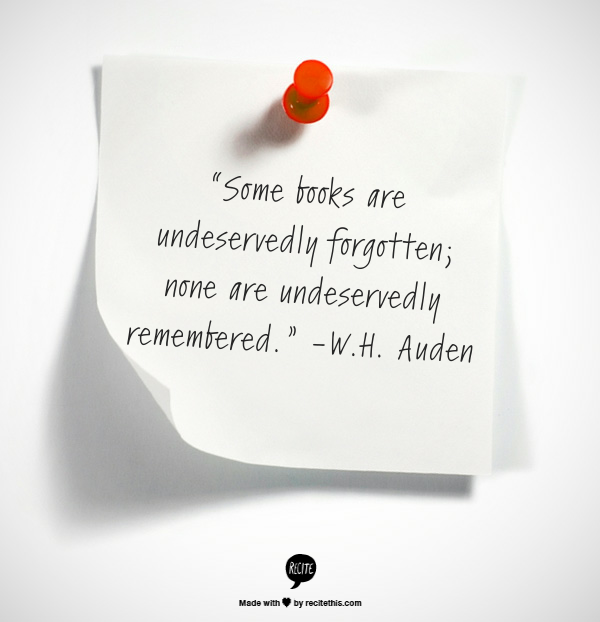
“Choose an author as you choose a friend.”
–Wentworth Dillon, Lord Roscommon, c. 1633-85, Irish poet and critic, Essay on Translated Verse (1684) l. 96
“No furniture is so charming as books.”
–Sydney Smith, 1771-1845, English essayist
“All books are either dreams or swords,
You can cut, or you can drug, with words.”
–Amy Lowell, 1874-1925, American poet, ‘Sword Blades and Poppy Seed’ (1914)
“Only connect! … Only connect the prose and the passion, and both will be exalted, and human love will be seen at its height.”
–E.M. Forster, 1879-1970, English novelist, Howard’s End (1910), ch. 22
“A good book is the best of friends, the same to-day and for ever.”
–Martin Tupper, 1810-89, English writer
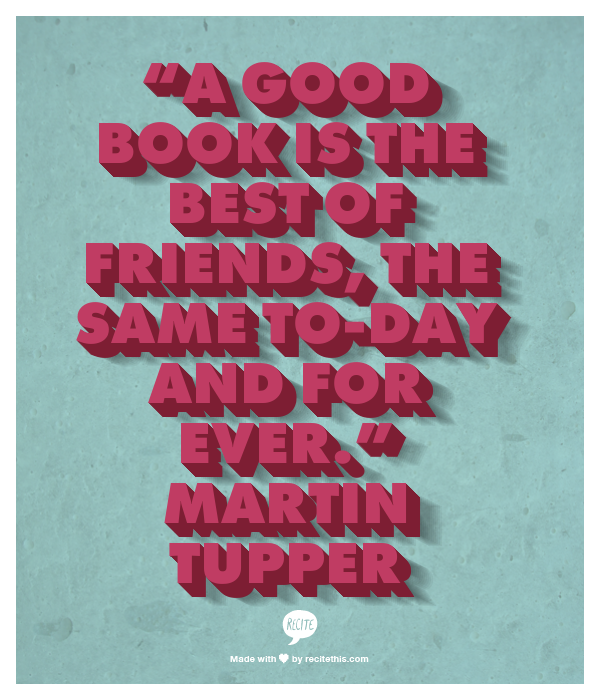
“Some books are to be tasted, others to be swallowed, and some few to be chewed and digested.”
–Francis Bacon, 1561-1626, English courtier
“There is more treasure in books than in all the pirates’ loot on Treasure Island.”
–Walt Disney, 1901-66, American film producer
“There is no book so bad that some good cannot be got out of it.”
–Pliny the Elder, AD 23-79, Roman senator
“I hate books; they only teach us to talk about things we know nothing about.”
–Jean-Jacques Rousseau, 1712-78, French philosopher
“All books are divisible into two classes, the books of the hour, and the books of all time.”
–John Ruskin, 1819-1900, English critic
Ever since the first edition of the Oxford Dictionary of Quotations published over 70 years ago, this bestselling book has remained unrivalled in its coverage of quotations both past and present. Drawing on Oxford’s dictionary research program and unique language monitoring, over 700 new quotations have been added to this eighth edition from authors ranging from St Joan of Arc and Coco Chanel to Albrecht Durer and Thomas Jefferson.
Subscribe to the OUPblog via email or RSS.
Subscribe to only language articles on the OUPblog via email or RSS.
The post What is a book? appeared first on OUPblog.


By: Maggie Belnap,
on 5/19/2014
Blog:
OUPblog
(
Login to Add to MyJacketFlap)
JacketFlap tags:
Online products,
Prince Albert,
Rhetoric & Quotations,
of queen,
attachment_67257,
attachment_67234,
hayter,
wedding,
History,
canada,
quotations,
victoria,
British,
queen,
queen victoria,
Oxford Reference,
oxford dictionary of quotations,
British history,
Victoria Day,
*Featured,
Add a tag
Monday, 19 May is Victoria Day in Canada, which celebrates the 195th birthday of Queen Victoria on 24 May 1819. In June 1837, at the age of 18, Victoria became Queen of the United Kingdom of Great Britain and Ireland, as the Empire was called then.
Queen Victoria would reign for more than 63 years, longer than any other British Monarch to date. The Victorian Era, as it came to be known, was a time of expansion of the British Empire, as well as modernization and innovation following the Industrial Revolution of the early 19th century.
To celebrate Victoria Day, we’ve chosen a few of her most famous quotations to illustrate her life and legacy.
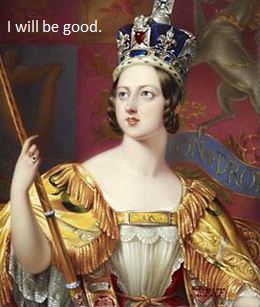
On being shown a chart of the line of succession, 11 March 1830
Theodore Martin The Prince Consort (1875) vol. 1, ch. 2
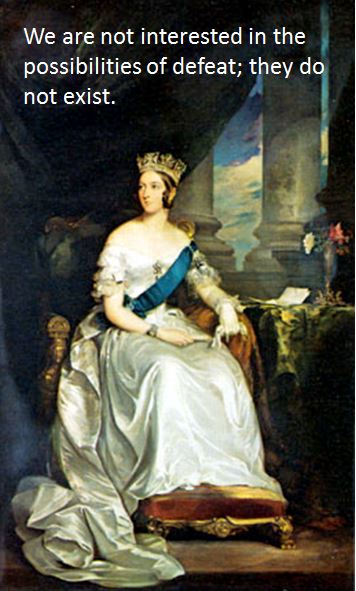
On the Boer War during ‘Black Week’, December 1899
Lady Gwendolen Cecil Life of Robert, Marquis of Salisbury (1931) vol. 3, ch. 6
“The Queen is most anxious to enlist every one who can speak or write to join in checking this mad, wicked folly of ‘Women’s Rights,’ with all its attendant horrors, on which her poor feeble sex is bent, forgetting every sense of womanly feeling and propriety.”
–Queen Victoria, letter to Theodore Martin, 29 May 1870. From Oxford Essential Quotations.
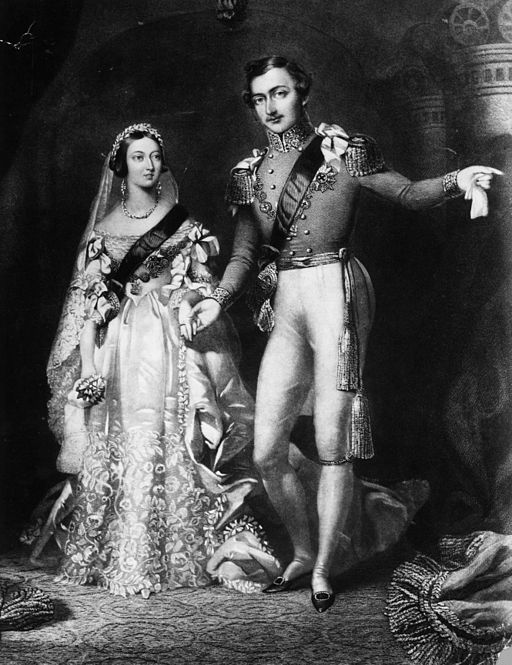
“What you say of the pride of giving life to an immortal soul is very fine, dear, but I own I can not enter into that; I think much more of our being like a cow or a dog at such moments; when our poor nature becomes so very animal and unecstatic.”
–Queen Victoria, letter to the Princess Royal, 15 June 1858. From Oxford Essential Quotations.
The Little Oxford Dictionary of Quotations (5th ed), edited by Susan Ratcliffe, was published in October 2012. The Oxford Dictionary of Quotations (7th ed), edited by Elizabeth Knowles, was published in 2009 to celebrate its 70th year.
Oxford Reference is the home of reference publishing at Oxford. With over 16,000 photographs, maps, tables, diagrams and a quick and speedy search, Oxford Reference saves you time while enhancing and complementing your work.
Images: 1. Queen Victoria in her Coronation Robes by George Hayter. Public Domain via Wikimedia Commons. 2. Portrait of Queen Victoria, 1843 by Sir Francis Grant. Public Domain via Wikimedia Commons. 3. Wedding of Queen Victoria and Prince Albert engraved by S Reynolds after F Lock. Public Domain via Wikimedia Commons.
Subscribe to the OUPblog via email or RSS.
Subscribe to only history articles on the OUPblog via email or RSS.
The post Celebrating Victoria Day appeared first on OUPblog.















